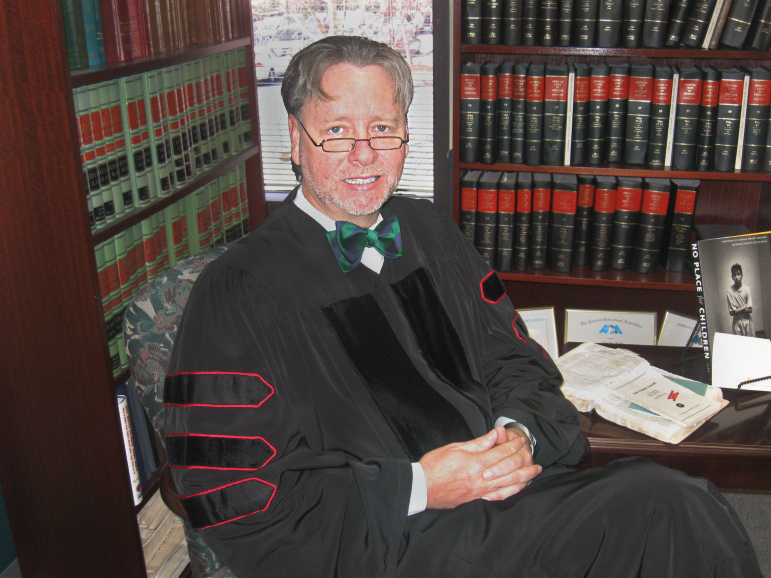 “Grow up and act like an adult!” — a catchphrase that describes an adult acting like an adolescent.
“Grow up and act like an adult!” — a catchphrase that describes an adult acting like an adolescent.
We typically say or hear this phrase when adults say or do stupid things that rub the rest of us the wrong way. Their stupidity is generally associated with adolescent wiring — “How juvenile” or “that’s childish.”
These catchphrases were bantered about long before adolescent brain research proved that youth are neurologically wired to do stupid things. We didn't need medical science to prove what we already knew -- kids are under neurological construction. The only thing the medical science gave us beyond what we already surmised by observation is that adolescent wiring continues until age 25.
Given what we have learned and benefited from studying adolescents, I think we could do well turning our focus on studying why adults in many educational systems across our country still subscribe to a zero tolerance approach to disciplining students. It’s one thing to tell an adult to “grow up and act like an adult” when he or she says or does something stupid, but it’s an entirely different thing when educators --presumably trained in child and adolescent development -- exact stupid discipline policies harmful to students that arguably falls into this same catchphrase category.
Who is stupid now -- the adolescent who is biologically wired to do stupid things or the educated and experienced adult trained and paid to avoid stupid things?
Why are so many educators, presumably dedicated to promoting the welfare of kids, overusing suspension, arrests and expulsions that hurt those they are charged to protect?
Educators are not only violating their own code of ethics, they are twisting a legal maxim to suit their own needs.
In Parentis Locus means “to stand in the place of a parent.” It is a long-standing concept commonly employed by schools to act in the shoes of parents while having control of their children. Despite some curtailment involving civil liberties, school administrators proudly exercise this doctrine with the authority to act as a parent, but do things to kids they might never do to their own if they were in the same circumstances.
No one should be allowed to possess the authority to act as a parent, but wield a sword of abuse and neglect on those in their charge. It is a sad irony that our dependency laws allow for courts to remove kids from their parents who wield such ugly swords, and at the same time permits our education system to perpetrate abuse and neglect on those same children and turn a blind eye.
If the juvenile court system is legally mandated to protect our children from the abuse and neglect of parents, why would it not apply to others who “stand in the place of a parent,” i.e. the educator?
The recent arrest of a high school student in an Atlanta suburb for having a fishing knife in his tackle box that was in his car in the student parking lot is an example of adult immaturity.
What motivated the police officer to arrest this kid knowing full well he possessed no criminal intent to harm anyone?
Who was advocating for this student “in the place of the parent?” -- not the educators!
This stupidity will not end until the judiciary insists that such cases have no place in the juvenile justice system.
It’s not good enough that we divert these cases when the harm has already occurred. Using diversion to mitigate damage that should never happen in the first place is not a solution. It begs the question: What should we be doing to stop the damage?
When school arrests in my county, Clayton County, Georgia, reached a ridiculous number involving mostly misdemeanors, something needed to be done. The juvenile code obligates judges to protect the welfare of every child in his or her county — and my toleration of these arrests was a breach of that obligation.
I convened the police and schools and told them, “If you don’t want me in your business, be careful who you send me!” The arrests declined 83 percent.
My role as a judge in protecting children involves more than sitting on a bench and wearing a robe — it requires community activism.
This role of duality reminds me of Dr. Martin Luther King’s perspective on the “Good Samaritan”— I don’t want to be like the Good Samaritan, I want to be the person who fixes the road to Jericho so no one gets beat up!
We need to get our hands dirty and fix this road before too many of our kids get beat up!
